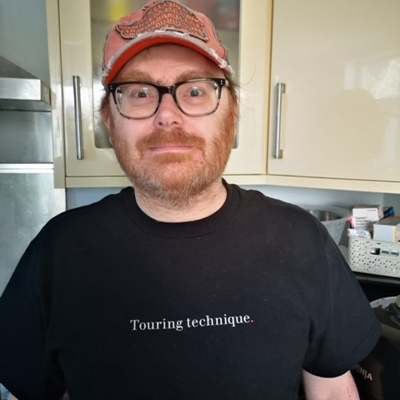“I didn’t know diabetes could contribute to having a stroke, until I had one at 36,” explains Peter Bithell from Salford.
“I pulled up outside our nursery to get my youngest out of the car. When I stood up, the world seemed to shift and I was falling into parked cars. Luckily, someone noticed me and shouted for help because I kept swaying and being sick. But I didn’t know what was happening because I wasn’t drunk and it didn’t feel like a ‘hypo’.” Peter explained.

Diabetes means you have too much sugar in your blood and this can make you twice as likely to have a stroke. But it’s important to remember that you can live well with diabetes, and reduce your risk of having a stroke if you follow advice and treatment.
Peter continues, “The Stroke Association explained what having a stroke means and the support available. The charity also helped me get to grips with depression and other issues which followed my stroke.”
“I’d say that diabetics should really look after themselves because I didn’t. If you have diabetes, you should have help and advice on managing your condition from a team of health professionals including your GP. You will be given regular checks to keep an eye on your blood sugar levels and blood pressure. This can help you stay well, and reduce your risk of stroke.
“With the level of medication and devices out there, it is not as hard to self-manage as it was. I would say to anyone to be aware of the symptoms of diabetes, speak to your Diabetes Nurse and other diabetics as much as you can, and keep your family informed.
“I moved on to volunteer for the Stroke Association which is something I wouldn’t have achieved before my stroke. This gave me hope and the chance to get involved with new and rewarding things.”
For more information, you can order or download our guide on diabetes and stroke or call the Stroke Helpline.
